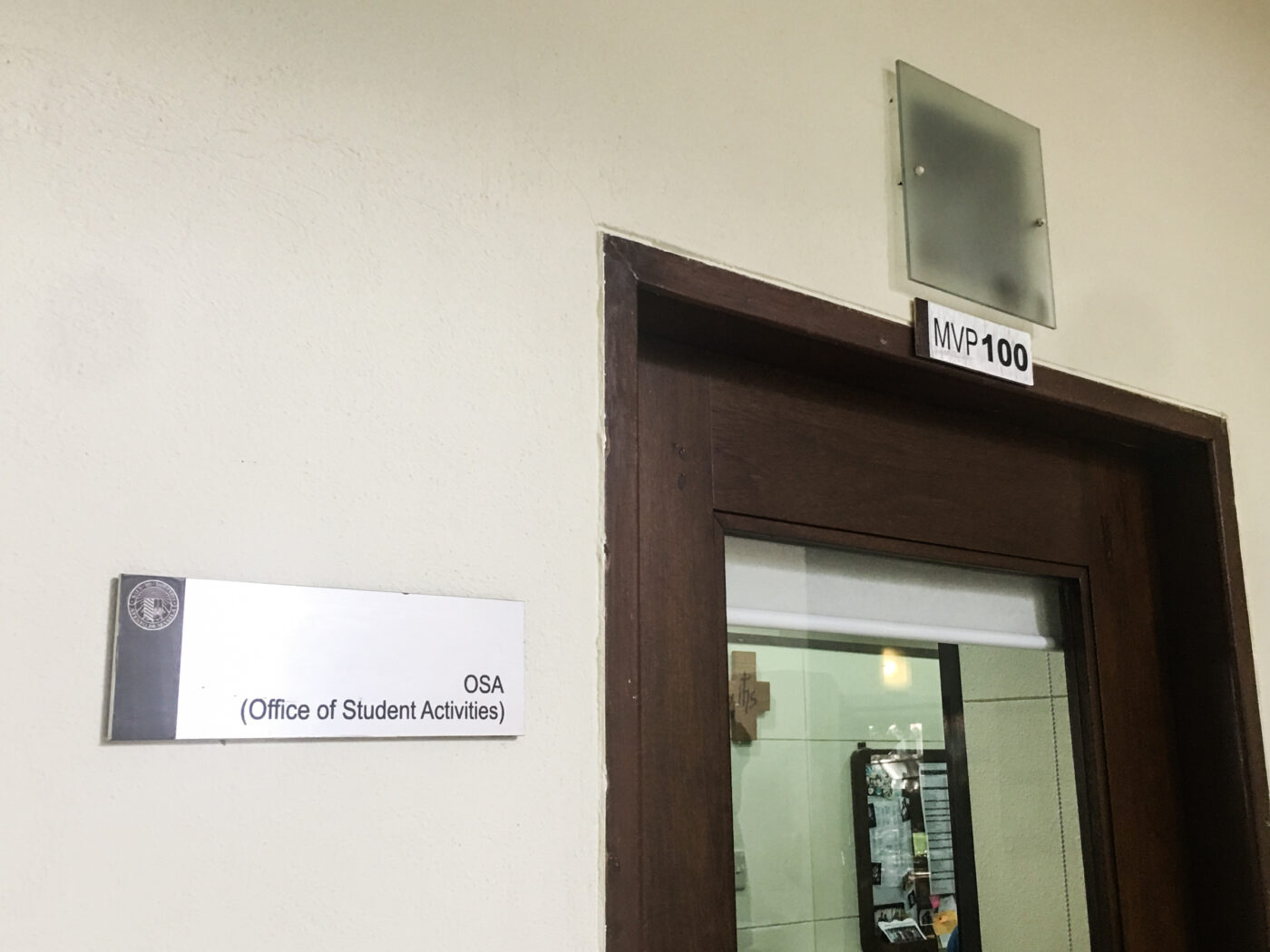The Office of Student Activities (OSA) has temporarily halted the Loyola Schools Performance Management System (LS PMS) for student organizations (SO) this school year, in order to make way for an evaluation and system appraisal.
The system will be evaluated and replaced fully by the second semester of SY 2018-2019.
The LS PMS for SO was instituted in SY 2007-2008 in a bid to mentor, measure, and evaluate the performance of accredited student organizations. Through this effort, the office intended to identify and implement appropriate interventions that may achieve the further growth and development of accredited student organizations as having an “accredited” status means that a group has maintained the standards defined by OSA.
In a memo to all student groups and organizations released on March 22, OSA Director Ralph Quiblat said that the LS PMS for SO has not been evaluated for “best practices and areas for improvement” since its institution ten years ago, thus concluding that an evaluation and system appraisal is long overdue.
Review team
The PMS Review Team is headed by Kevin Ace Lopez-Vito, OSA Coordinator for Student Organizations Assessment and Review. The team will research, evaluate, develop, and implement a new system to replace the current one by SY 2018-2019.
“It is difficult to have the same standard [of evaluation] for all student organizations,” said Lopez-Vito. He explained that the university maintains a wide spectrum of organizations from nine clusters with different core competencies from one another.
He further added that organizations from the 1990s are from a different landscape altogether compared to what it is like today.
“Organizations right now are more empowered in that they are trying to send a reply to the problems that we have in society, “ he explained.
With this regard, he finds that the new system must have a wide array of components to evaluate the organizations. However, he said that they must also be afforded a sense of individualism given the nature of their cluster and organization.
“You cannot box them to some aspect of evaluation marker just because that is what the organization does,” he explained.
According to Lopez-Vito, this process of assessment and review will be “difficult” because there is a need to firstly design the tool to evaluate the current system and secondly design yet another tool to evaluate the student organizations.
Timeline of the process
Since January, the team has been making headway in gathering data from the student activities community through focus group discussions, surveys, and interviews.
To ensure the efficient handling of data and information, the team is working with the Organizations Strategies and Research Department from the Council of Organizations of the Ateneo.
Furthermore, the team will be benchmarking the current system with other universities, both local and foreign.
The gathered data will then be analyzed from May to June and the new system will be designed and tested from July to June. Thereafter, a consultation roadshow will be held from September to October to introduce the new system to an audience of administrators and students, who will then give their final feedback.
Finally, the beta implementation of the new system will begin in the second semester of SY 2017-2018.
Sentiments
Ia Marañon, incoming President of the Sanggunian, thinks that the PMS needs to be more inclusive. “Currently there is an imbalance of how we view and evaluate these organizations with regard to their efforts,” she said.
Marañon said that to improve the PMS, OSA must include the student organizations in the conversation and that it is just right for the organizations to have the power to determine what happens to them.
During her term as Sanggunian President, she plans to initiate the conversation and collaboration.
“I will work closely with OSA and bringing this as an agenda in my term as the Sanggunian President will hopefully bear fruits of more student-governed, student-led student activities here in our university,” she said.
Student leaders expressed hope for the new system that will replace the LS PMS for SO.
Marimar Baticulon, outgoing President of Ateneo Gabay, says that some of the tools provided by the LS PMS are not useful, such as the year-end status report (YES Report), which she says only served as documentation and failed to help the organization evaluate its efforts properly.
“Our accreditation status is based on the YES Report and Presentation (80%) and Professionalism (20%), which I think, do not accurately reflect our performance as an organization,” she said.
She hopes that the OSA could provide a tentative system by intersession and first semester, since the beta implementation of the new system will be in the second semester. She wants the new system to focus on helping organizations set the right goals, monitor their progress, and evaluate their efforts properly.
She also hopes that the system could be more consultative in nature and with less bureaucracy involved, and that it could be simplified and made flexible based on the unique needs of the organizations.
“I look forward to the outcome of this effort and I believe that OSA is doing its best to reach out to the organizations as our partner in formation,” she says.
Sam Quinto, President of Ateneo Project for Asian and International Relations, thinks there are minimal changes between the proposed replacement requirements and the previous requirements as of yet, especially in terms of the content of requirements.
This year, the YES report was no longer required.
“The system is okay, but I would appreciate something more engaging and creative – something that wouldn’t feel like a chore but somewhat of a culminating activity or output that our org’s next generation can still make good use of in the future,” he said.
Still, Quinto appreciates the effort OSA is putting into revamping the current system, especially since COA and Sanggu are in their transition years.







